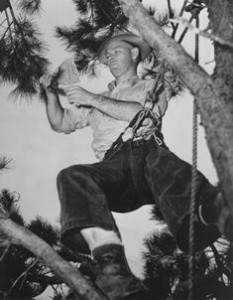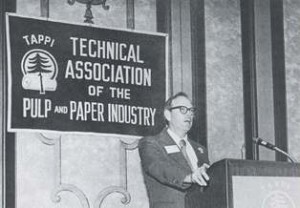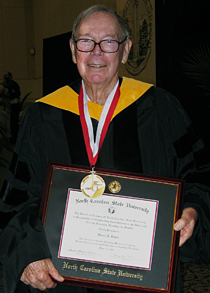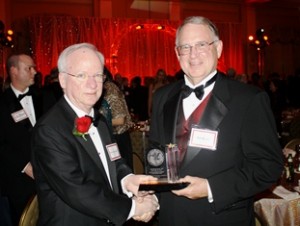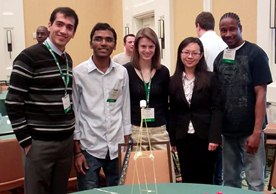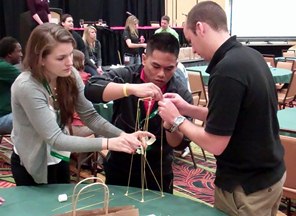NEWS RELEASE:
For Immediate Release
North Carolina State University is part of a team of 12 institutions across the Southeastern United States selected by the U.S. Department of Agriculture’s National Institute of Food and Agriculture to establish a regional network to monitor the effects of climate change on southern pine trees. The goal is to use the information to develop new management methods and varieties of pines to help Southeastern pine forests adapt to changes in climate.
Researchers will study climate-change mitigation and adaptation as it relates to southern pines, particularly loblolly pine, which comprises 80 percent of the planted forestland in the Southeast. NC State researchers, led by Dr. Ross Whetten, associate professor of forestry, will participate in establishing the monitoring network to collect information on response to climate change, examining the genetics of pine to learn how the trees grow and respond to temperature and rainfall, and measuring the nutrients the trees take in from and release into the atmosphere and soil.
Key components of NC State’s research effort include creating and disseminating knowledge that helps landowners harness planted pine forest productivity to mitigate atmospheric carbon dioxide; use nitrogen and other fertilizers more efficiently; and adapt their forest management to increase resilience in the face of changing climate.
Dr. Ryan Boyles, North Carolina state climatologist and assistant professor of marine, earth and atmospheric sciences, will also play a key role in coordinating state climatologists with forestry extension personnel to engage land managers across the region.
“We want to find out from landowners early on in the research process what questions they have about the impact climate is having on their ability to manage their land,” Boyles says. “This proposal is going to be very interesting not only in helping to improve forest production in a changing climate, but also in understanding the positive impact the timber industry plays in improving carbon sequestration. There are few tools as successful as forestry in having a positive effect on climate change.”
By the study’s conclusion, researchers hope to develop a computer model that incorporates climate variables – like temperature, rainfall and other factors – to predict forest productivity under different climate conditions. They also want to identify new varieties of loblolly pine, and new management techniques for existing pine plantations, that will allow plantations to better tolerate predicted climate change.
“In the end, we want to provide information and tools that equip landowners and forest managers to increase the sustainability and productivity of planted pine forests, and that empower environmental agencies and policy makers to make informed decisions about how forests will respond to climate change,” Whetten says.
The overall grant, a $20 million, five-year project, will be led by Dr. Tim Martin at the University of Florida. NC State will receive $3.67 million to perform its research, education and outreach activities.
Media Contact:
Caroline Barnhill, NCSU News Services, 919/515-6251 or caroline_barnhill@ncsu.edu



